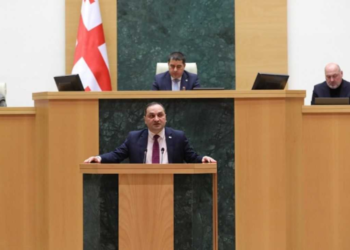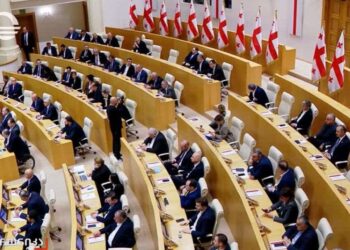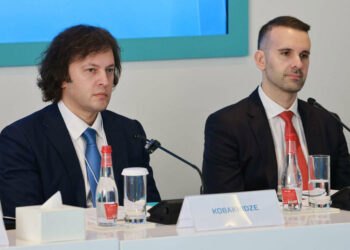On May 17, 2013, planned protest against homophobia was dispersed by violent-minded clerics and right-wing groups. They broke the police cordon and physically confronted the peaceful pro-LGBT rights activists.
In that May 17, 2013 case, the Strasbourg Court has ordered Georgia to pay 193,500 Euros to the victims as compensation.
The case concerned an attack by a mob on LGBT demonstrators on 17 May 2013, the International Day Against Homophobia, in central Tbilisi.
“In the case, the European Court of Human Rights held, unanimously, that there had been:
“A violation of Article 3 (prohibition of inhuman or degrading treatment) in conjunction with Article 14 (prohibition of discrimination) of the European Convention on Human Rights, both on account of the authorities’ failure to protect the peaceful demonstrators from homophobic and transphobic aggression and of the ensuing inadequate investigation.
“A violation of Article 11 (freedom of association) taken in conjunction with Article 14.
“The Court found in particular that the authorities had failed to take measures to protect the LGBT demonstrators from the mob, despite being aware of the risks associated with the event. There was furthermore evidence, namely video footage by independent journalists, of official connivance in the acts of violence and underlying prejudice.
“Indeed, the Court could not exclude the possibility that the unprecedented scale of the violence had been influenced by the authorities’ failure to carry out a timely and objective investigation into the attacks on the LGBT community during the previous year’s event, which was also the subject of a case before the Court where violations of the Convention were found,” stated the Court.
The applicants are 35 Georgian nationals and two non-governmental organizations, Women’s Initiatives Supporting Group and Identoba, set up to promote and protect the rights of lesbian, gay, bisexual and transgender (LGBT) people in Georgia.
The press release issued by the Court reads that in April/May 2013 the applicants contacted the authorities about protecting them against radical groups during a rally to mark the International Day Against Homophobia on 17 May 2013 on Rustaveli Avenue in Tbilisi. They intended to hold a silent 20-minute flash mob.
Amid media reports that ultra-conservative NGOs and clergymen were planning a counterdemonstration and a hate speech campaign on social media against the applicant associations’ staff members, the applicants met senior officials from the Ministry of the Interior. The officials gave assurances that all participants’ safety would be guaranteed. They also suggested that the applicants’ event be moved to Pushkin Square, in order to avoid direct confrontation with the 10,000 counter-demonstrators who were expected.
“On 17 May 2013, twelve of the applicants, who were the first to arrive at Pushkin Square, found themselves facing 35,000 to 40,000 counter-demonstrators. The crowd, which was separated from them by metal fences and a thin cordon of unarmed police officers, were chanting homophobic insults and uttering death threats. There were no riot police,” reads the press release.
The Strasbourg court notes that thousands of demonstrators chased 12 people with wooden and iron sticks and then threw stones at their buses. Later, one of the protesters, who was sheltering in a shopping mall, was physically assaulted, and in order to prevent the attack, the police pulled him out disguised as a policeman, which involved shaving off his beard. Strasbourg ordered the state to pay 6,000 euros to this participant because the police had forced him to shave his beard.
A payment of 10,000 euros was imposed on the state for a victim who suffered a concussion.
According to the court, it does not matter whether all 27 victims received physical injuries, but rather that they were in danger and found themselves surrounded by homophobic groups who threatened them.
In addition, a press release from the Strasbourg Court states that the court has video evidence provided by journalists that police officers not only did not respond to a police cordon breach by violent groups, but even opened the way for them.
The Strasbourg Court concluded that the authorities had not taken action and did not make the protection of the victims a priority.
By Ana Dumbadze














